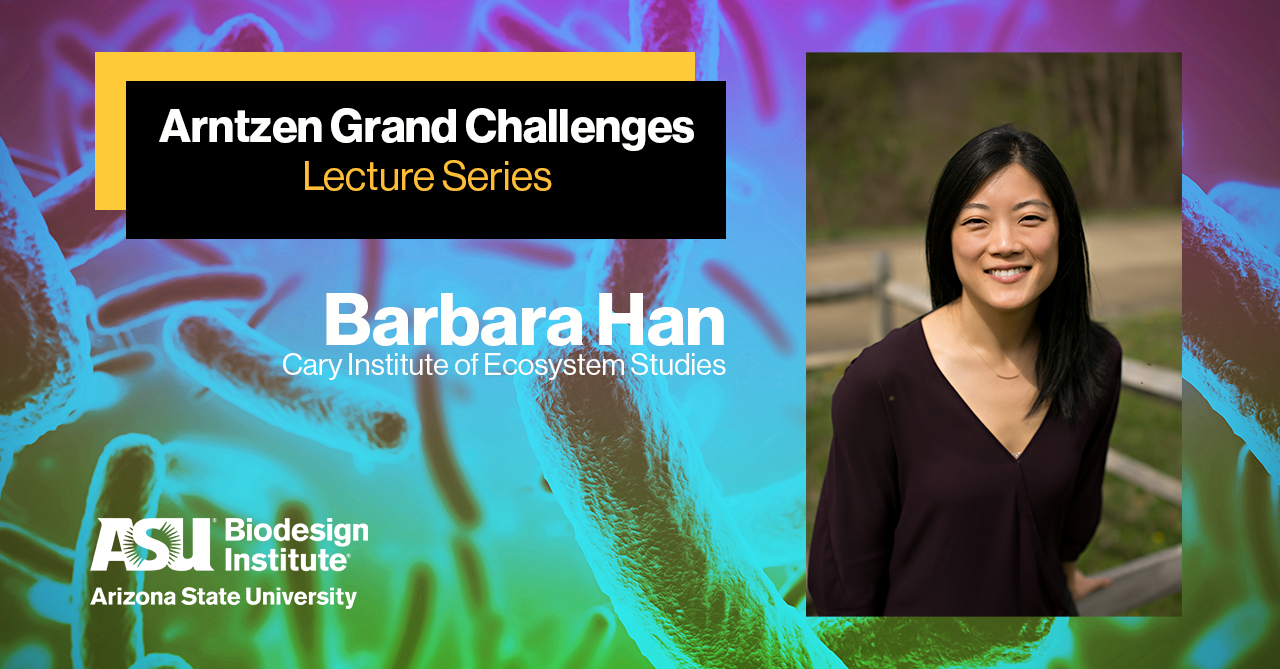
Date/Time
Date(s) - 20 Nov 2025
6:00 PM - 8:00 PM
Location
Walton Center for Planetary Health Auditorium

Arntzen Grand Challenges Lecture:
Predicting emerging infectious pathogens from animals
Date: Thursday, November 20, 2025
Time: 6 p.m. – 8 p.m. (MST)
Location:
Walton Center for Planetary Health Auditorium
777 E University Dr Tempe AZ 85281
Cost: Free
The Arntzen Grand Challenges Lecture series is inspired by Charles (Charlie) Arntzen, founding director of the ASU Biodesign Institute. Every year, the Arntzen lecture series hosts distinguished researchers to discuss the latest developments in nature-based science, research and solutions development.
This year we are excited to welcome Dr. Barbara Han, a disease ecologist at the Cary Institute of Ecosystem Studies, as our featured speaker.
How can we prepare for infectious diseases we’ve never encountered, emerging in unexpected places and carried by animals we barely understand? In recent years, scientists have begun addressing this daunting challenge: predicting the “unknown unknowns” of disease emergence in human populations. These efforts are increasingly critical in a rapidly changing world, where human activities are transforming ecosystems, increasing contact between people and wildlife and creating new opportunities for pathogens to spill over.
In this lecture, Dr. Barbara Han will examine how researchers are working to make sense of this complexity by integrating ecology, virology and artificial intelligence. She will highlight recent efforts that combine machine learning with biological data to identify bat species that may carry dangerous viruses such as Ebola — and how these approaches can help pinpoint where and when future threats might emerge. While these methods do not yet offer perfect foresight, they represent some of the most advanced tools available for guiding disease surveillance, management and prevention. By working across disciplines and viewing nature through new scientific lenses, researchers are beginning to shift the paradigm: from reacting to pandemics to anticipating them.
